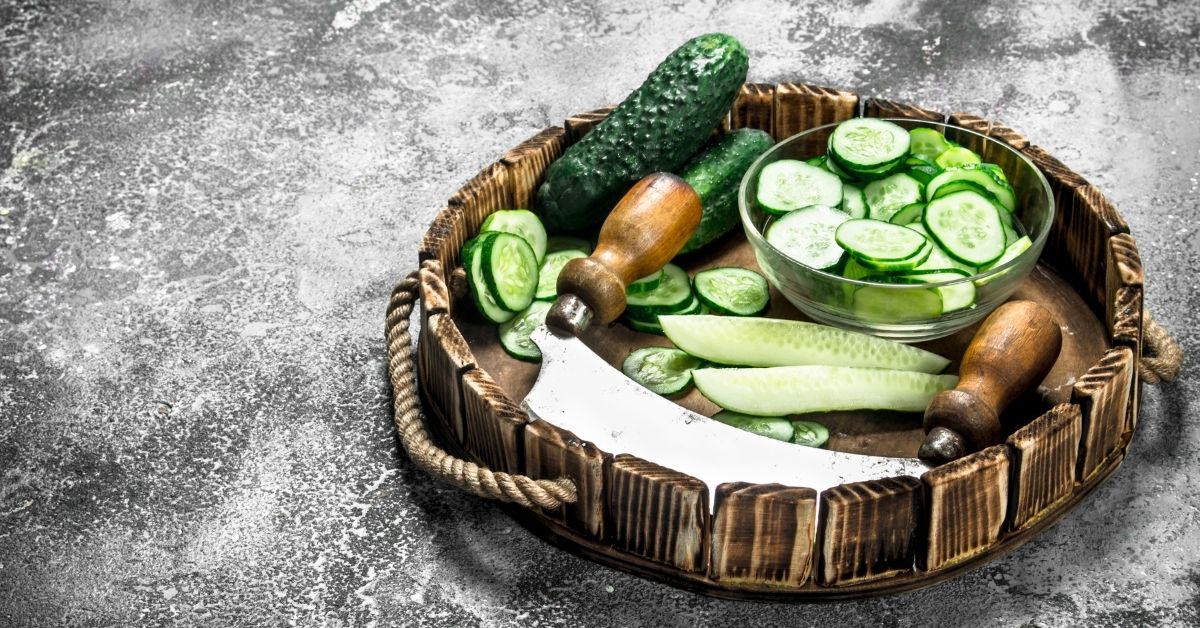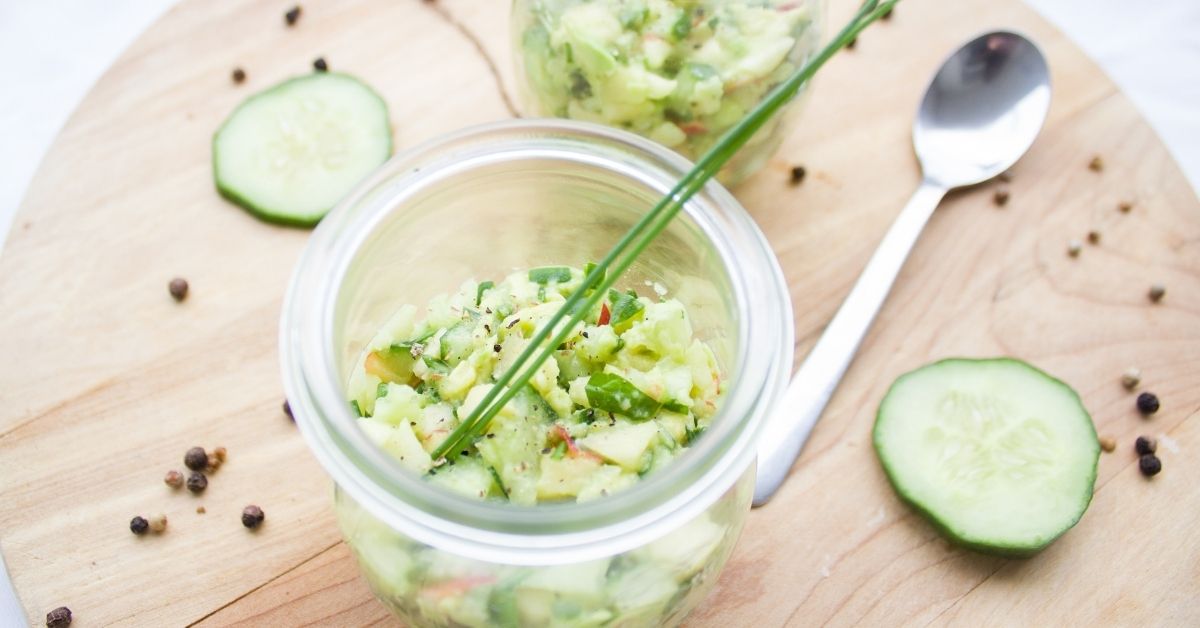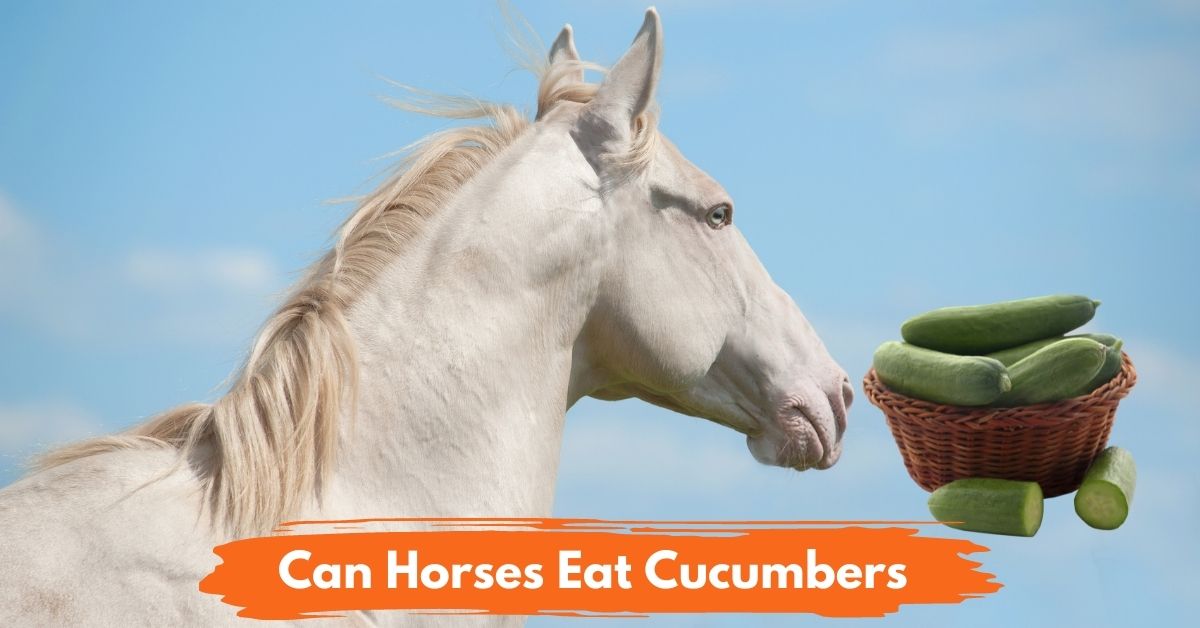
Horses can eat cucumber since it’s a source of hydration. Cucumbers contain 90% to 95% water. They’re also low on calories, so they won’t let your horse gain unnecessary weight. So, you can add cucumber to your list of treats for your horses.
My horses enjoy cucumbers in summer, but I don’t serve these fruits daily. They have two cucumbers in a week. Even if they are low in calories and high in water content, I’m careful about preparation and serving.
Cucumbers are not in the main diet of equine. So, horses should consume them in moderation. You have to be mindful of these aspects. I’ll share the proper ways of feeding horse cucumbers in this article. Hence, it’s worthwhile to read the whole article.
Are Cucumbers Safe For Horses
I must say that cucumbers are safe for horses in moderation. Too much of something is terrible. There’s no difference when giving horse cucumbers a treat. As you know, they have sensitive stomachs and guts.
Here are some tips to ensure that the cucumbers are safe for your horses.
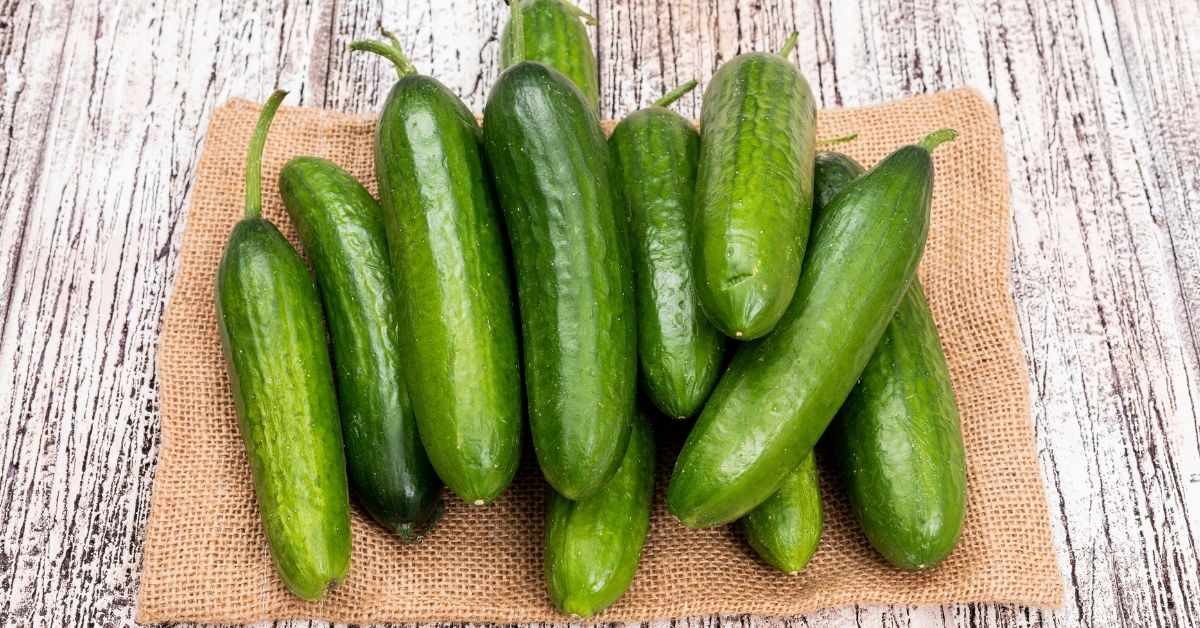
Limit on the Quantity
As mentioned, cucumbers can be one of the treats for horses. These fruits are not included in the main diet, so you must limit the quantity. I give two cucumbers to each horse in a week. You may divide this amount into a few pieces per day.
The equine’s digestive system can manage with consistency and stability. Some horses can finish one whole cucumber, but others are better with a few pieces daily. Know your horses so you can prevent stomach problems from happening.
Due to the cucurbitacin in cucumbers, the gas build-up can form inside the horse’s stomach. The presence of gas is a bad thing since equines can’t burp or belch. Hence, they will feel uncomfortable. So, you better stop giving them cucumbers when they show this sign.
Slow Introduction of Cucumbers
You don’t have to dump a pile of cucumbers into the feed tub of horses. You’ll only expose your horses to gastric issues if you do so. The right thing that you have to do is to give your horse a few pieces and then track their response to the fruit.
You must continue the observation for a few days after feeding the animal cucumbers. You’ll know that horses are in distress when they lose appetite, paw on the ground, roll, and sweat a lot. There will be unusual noises coming from the gut. To sum it up, you can observe some changes in the usual demeanor of horses.
Size of Cucumbers
This part refers to how you prepare your cucumbers. The best way to feed these fruits to your horses is by slicing them into chunks. Horses have large teeth that they can use to bite the pieces of cucumber.
You shouldn’t chop them into small pieces as some horses tend to swallow them. They might choke without trying to chew. Cut a medium-sized cucumber into 6 to 8 pieces.
Cucumber chunks have the crunch that horses can enjoy. But, those with missing teeth or dental issues might struggle to eat them. You can whip some cucumber juice for these horses and add the liquid to their daily grains.
The Need For Thorough Washing
You can’t be sure about how farmers have grown cucumbers. Some fruits and vegetables have pesticides. Since you’re not sure, thorough washing is essential.
You must do it if you don’t want harmful chemicals to enter your horse’s body. Organic cucumbers don’t contain any chemicals.
Some Exemptions
Cucumbers are not safe for all horses, so there are some exemptions. Horses that have hyperkalemic periodic paralysis don’t need to eat cucumbers. They need a low-potassium diet.
Cucumbers can make their conditions worse due to their potassium content. So, you don’t need to feed cucumbers and other foods that are rich in potassium to horses.
Benefits of Feeding Cucumbers to Horses
Cucumbers have lower nutritional content compared to other fruits and vegetables. But horses can still get several health benefits from these fruits.
For Hydration
Cucumbers with 90% to 95% water content can help horses meet their fluid needs. Hydration is an essential need of equine. Still, you have to make your horses drink water after their meals.
Antioxidant With Anti-inflammatory Properties
Cucumbers are antioxidants, so they have anti-inflammatory properties. Hence, they work like aloe Vera. They soothe irritation as well as sunburn.
They have three types of lignans called pinoresinol, secoisolariciresinol, and lariciresinol. These lignans prevent the development of cancer in a horse’s body.
With Vitamins and Minerals
Horses can get Vitamin A, Vitamin B6, Vitamin C, and Vitamin D from cucumbers. These fruits have Vitamin K, too, which helps wounds to heal. Also, these fruits have calcium, folate, magnesium, and potassium. They have silica that nourishes connective tissues and joints.
Low Amount of Calories, Fats, and Carbohydrates
A serving of fresh cucumbers has low calories, fats, and carbohydrates. It means that it can’t make horses overweight.
Horses that need to lose weight can eat it because there are no calories and fats that can add up to their weight. The same effect goes with insulin-resistant horses.
Can Horses Eat Raw Cucumber
Horses can eat raw cucumber since it’s low in calories. I sometimes freeze cucumbers to make a cold treat in summer. You may wonder how far you can go with raw cucumber. Moreover, you’ll immediately think about pickles, as cucumber is a common ingredient.
Pickled cucumbers go through brine fermentation. To find the answer, let’s look at pickles’ characteristics.
Pickled cucumber is a result of curing through salt. It tastes like brine and vinegar. When it comes to taste, your horses will like it. The University of Minnesota Extension recommends adding cider vinegar to drinking water. It’s a method to encourage the equine to drink enough water.
Pickled cucumber is not toxic to horses. It contains salt and dill, a spice that aids with digestion. Horses are fine with salt intake.
Pickled cucumber, when not boiled, has probiotic bacteria that are beneficial for digestion. Also, these bacteria make way for a healthy gut needed by horses.
But keep in mind that horses should eat pickled cucumber in moderation. Give your horses a few pieces of pickled cucumber to see if they like it. It’s the same process as when introducing raw cucumber.
Horses can have both raw and pickled cucumbers as treats. They can eat them now and then in small amounts. Too much can cause digestion problems.
Can Horses Eat Cucumber Peels
Horses can eat cucumber peels but you have to wash them well. Some plants and fruits have exposure to insecticides or pesticides while they grow. Wash the fruit well so your horses won’t ingest harmful chemicals.
Cucumber peels are more nutrient dense than the flesh, so that they can nourish horses. They have vitamins A, C, D, and K, calcium, and potassium. These nutrients promote strong bones so the horses can push through with activities.
The peels have dietary fibers that are helpful in digestion. All the health benefits sound good, but you must ensure that your horses like them.
When they try cucumber for the first time, let them try the cucumber flesh first. If there are no adverse reactions, you can leave the peel so you would know if it’s ok with their taste buds and system. Some horses are allergic to cucumbers, which is why a taste test is essential.
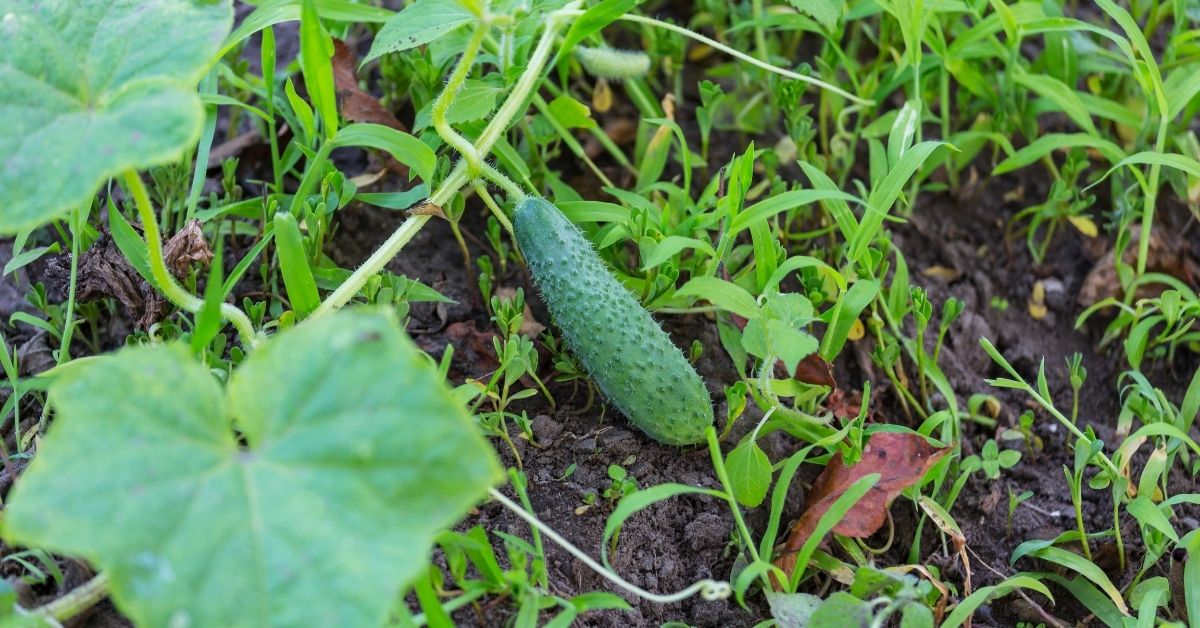
Can Horses Eat Cucumber Plants
Cucumber is the same as its cousin, squash. Their sprouts, leaves, flowers, fruits, and stems are non-toxic. In short, they’re both safe to consume from top to tail. Hence, your horses can eat cucumber plants.
Cucumber leaves and sprouts have a light and subtle flavor. They can make a good salad bowl. My horses like them too, but they eat a small amount like a treat. I limit the quantity as they’re not the main meal.
You don’t have to worry about toxic substances. Cucumber plants are not included in the list of plants that are toxic to horses. Nightshade plants and stone fruits are the harmful ones.
Can Horses Have Cucumber Seeds
When you see organic cucumber seeds, the large size may bother you. But it’s alright, as horses can have cucumber seeds no matter their size. Seeds are part of the flesh, and horses don’t have a problem digesting them.
Cucumber seeds are more nutrient-dense than flesh. They have the crunch that the horses can enjoy. The fiber and beta-carotene of these seeds can enhance the equine’s immunity. They can also help horses maintain the right body weight and have regular bowel movement.
Can Horses Have Cucumbers For Ulcers?
Horses can’t have cucumbers for ulcers. This fact is contrary to the ability of cucumbers to relieve ulcers among humans.
Horses have a different digestive system than humans. It’s more sensitive to a large amount of water in cucumbers, which is too much to bear. A few pieces of cucumber can burden horses with ulcers and other digestive issues like colic.
You may wonder about the negative effect. Horses can burp or vomit, and cucumbers can create gas that can stay in an equine’s stomach. This gas can’t leave the horse’s body since this animal can’t burp or vomit.
Because of this limitation, gastric rupture can happen in a horse’s stomach. It makes the equine ulcer worse.
So, I avoid feeding even a tiny amount of cucumber to my horses with ulcers as I’m not willing to take the risk. I also talk to a veterinarian before adding any food to my horses’ diet.
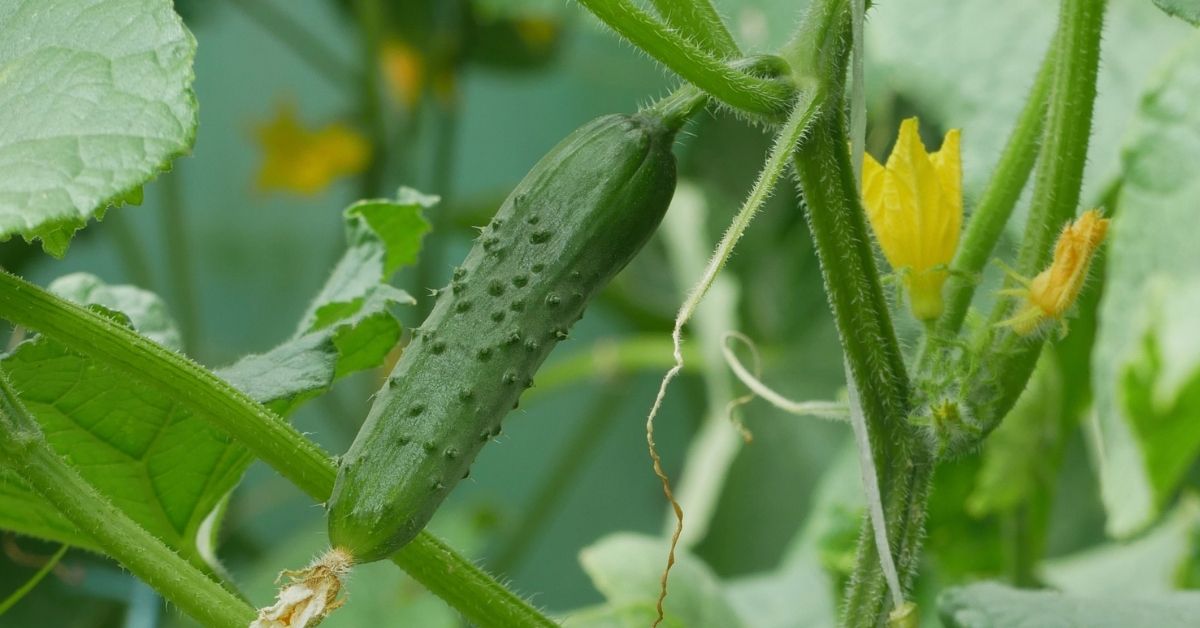
Do Horses Like Cucumbers
Horses like cucumber because of its juice and crunch. It’s not hard for them to like this fruit as it doesn’t have any unpleasant smell or taste. Still, you can’t make some horses eat cucumbers.
That’s why it’s crucial to take a taste test. You don’t only check if your horses like cucumbers or not. You also have to look for allergic reactions and other adverse effects.
Some horses may display swollen body parts, itchiness, lethargy, and difficulty breathing. These are the signs that you must not give cucumbers to your horses.
Are Cucumber Plants Safe For Horses
Cucumber plants are safe for horses because they don’t have toxins and poison. They’re like the squash family that has edible parts. The flowers, fruits, leaves, stems, and sprouts are consumable.
So, you can give your horses some trailing leaves and stems of your cucumber. Do it if you find the vines dominating most of your garden space. These plants can give you an abundant fruit supply, so doing so won’t cause inconvenience. You may add the leaves and stems into the roughage, but they should be in a small amount.
Are Raw Cucumbers Safe For Horses to Eat
Raw cucumbers are safe for horses to eat. I must say that it’s the healthiest form because it has a low amount of calories, carbohydrates, and fats. To ensure safety, you must wash it well, especially if you don’t remove the peel.
Washing cucumbers well is a must if you buy them at the market. You have to remove harmful substances in case some amount of pesticides is on the fruits. This step is still essential, even if they’re organic cucumbers or homegrown.
Raw cucumbers don’t have any toxins and poison that can harm horses. But, you have to know the proper ways of preparation. You have to wash it well and cut it into cubes.
The size of cucumbers should be big enough for horses to chew. You have to ensure that they won’t choke. So, it would be best if you never fed them the whole raw cucumber.
How Much Cucumber Can a Horse Eat?
A horse can eat cucumbers twice a week. The two servings can be equal to two pieces of cucumbers. You have to stick with this amount, and you may give it to your horse more than twice a week. Thus, a few pieces will do at a time, but the amount should not be excessive.
Conclusion
Horses can eat cucumber in moderate amounts. Cucumbers are low in fats, calories, and carbohydrates. So, they’re safe for most horses except those with ulcers and other digestive problems. Aside from fruits, horses can also eat cucumber plants.
Cucumbers are not toxic and poisonous, but you must wash them before giving them to your horses. They need to be in cubes to prevent choking. The taste test is necessary to see if they’re safe for your horses.

